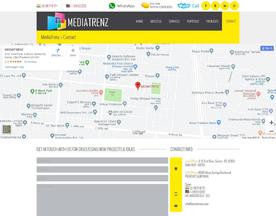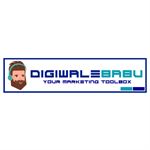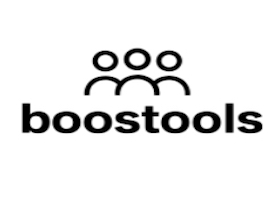What are the emerging role for digital creators? Digital creators are now influencers, content strategists, VR artists, and social media managers, shaping digital content and trends.
Digital creators are individuals who use digital tools and platforms to create and share content with their audience. They can be anyone from bloggers and vloggers to podcasters, social media influencers, and online educators. With the rise of social media and the increasing popularity of digital content, the digital creator landscape has become more diverse and competitive than ever before.

Content creation and strategy are key components of being a successful digital creator. From choosing the right topics to creating engaging and valuable content, digital creators need to have a clear understanding of their audience and their needs. They also need to be able to adapt to changing trends and platforms, as well as use the right tools and techniques to create high-quality content.
Key Takeaways
- Being a digital creator requires a clear understanding of content creation and strategy.
- Building and engaging with an audience is crucial for success.
- Digital creators need to stay up-to-date with the latest tools and trends in the industry.
Here is a helpful resource for creating a successful digital content creation strategy.
The Digital Creator Landscape
Defining the Digital Creator
The term “digital creator” refers to individuals who produce and distribute digital content, such as videos, photos, podcasts, and written content, through various online platforms. Digital creators can be influencers, content creators, or niche creators, and they can work with brands to create sponsored content.
Influencers are digital creators with a large following on social media platforms such as Instagram, YouTube, and TikTok. They use their influence to promote products and services to their followers. Content creators, on the other hand, are digital creators who focus on creating high-quality content, such as videos, podcasts, and blog posts. Niche creators are digital creators who focus on a specific topic or niche, such as beauty, fashion, or gaming.
Evolution of Digital Content Creation
The rise of social media and the internet has led to the emergence of digital creators, who have disrupted traditional media industries. Digital content creation has become a lucrative industry, with brands and platforms investing in digital creators to reach their target audiences.
Platforms like YouTube, Instagram, and TikTok have enabled digital creators to build their own brands and reach a global audience. Brands, in turn, have recognized the value of partnering with digital creators to create authentic content that resonates with their target audience.
As the digital creator landscape continues to evolve, it is important for brands to stay up-to-date with the latest trends and best practices. By working with digital creators who have a genuine connection with their audience, brands can create content that is both engaging and effective.
For more information on the digital creator landscape, check out this article from Business Insider, which provides insights on the growth and impact of digital creators on the influencer marketing industry.
Content Creation and Strategy
Creating content is the backbone of any digital creator’s success. Content can come in many forms, such as videos, blog posts, social media posts, podcasts, and more. However, creating engaging content is not enough. A digital creator must also have a solid strategy in place to ensure the content reaches the right audience and achieves its goals.
Content Types and Formats
The type of content a digital creator produces is crucial to their success. Different content types and formats appeal to different audiences. For example, younger audiences tend to prefer short-form video content, while older audiences prefer longer-form blog posts. It is essential to understand the preferences of the target audience and create content that resonates with them.
Digital creators should also consider the format of their content. Formats can include text, images, videos, and audio. A mix of different formats can help keep the audience engaged and interested in the content.
Identifying and Understanding Your Audience
Identifying and understanding the target audience is essential to creating content that resonates with them. A digital creator should research their target audience’s demographics, interests, and behavior to better understand their needs and preferences.
A useful tool for understanding the audience is creating a buyer persona. A buyer persona is a fictional representation of the ideal customer, including their demographics, interests, and behavior. Creating a buyer persona can help a digital creator tailor their content to the target audience’s preferences.
Planning and Consistency
Consistency is key to maintaining an engaged audience. Digital creators should have a content calendar in place to plan their content in advance. A content calendar can help ensure that the content is consistently produced and published at the right time.
Planning content in advance can also help ensure that the content aligns with the overall strategy and goals. A digital creator should have a clear understanding of the purpose of each piece of content and how it fits into the overall strategy.
In conclusion, content creation and strategy are critical to a digital creator’s success. By understanding the target audience, creating engaging content, and planning and executing a consistent strategy, a digital creator can build a loyal following and achieve their goals. For more information on content creation and strategy, check out this resource from Forbes.
Tools of the Trade
Digital creators require a range of tools and equipment to produce high-quality content. In this section, we will discuss the essential equipment, software, and digital tools that every digital creator should have in their arsenal.
Essential Equipment for Content Creation
The most important equipment for content creation is a camera and microphone. The camera is the primary tool for capturing visual content, and the microphone is necessary for capturing high-quality audio. The type of camera and microphone a digital creator uses will depend on their specific needs and budget. Some popular camera options include DSLR cameras, mirrorless cameras, and smartphones with high-quality cameras. For microphones, options include lapel mics, shotgun mics, and USB mics.
Software and Digital Tools
In addition to hardware, digital creators also need software and digital tools to edit and enhance their content. Video editing software is essential for creating high-quality videos. Some popular options include Adobe Premiere Pro, Final Cut Pro, and DaVinci Resolve. Graphics software, such as Adobe Photoshop and Illustrator, is necessary for creating visual content like logos, banners, and thumbnails.
Leveraging AI for Enhanced Creativity
Artificial intelligence (AI) is becoming increasingly popular in the world of digital content creation. AI-powered tools can help digital creators enhance their creativity by providing suggestions for content ideas, optimizing content for search engines, and even generating content. Some popular AI-powered tools for digital creators include Canva, Hootsuite, and Hubspot.
Overall, the tools and equipment a digital creator uses will depend on their specific needs and budget. It’s essential to invest in high-quality equipment and software to produce the best possible content. For more information on the tools and equipment mentioned in this section, check out this article.
Building and Engaging with an Audience
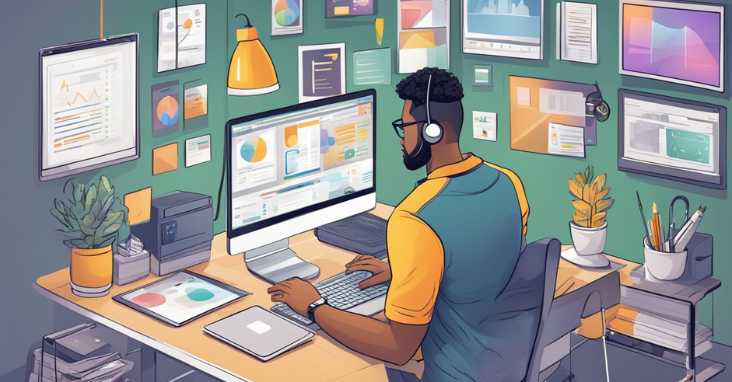
Creating a loyal and engaged audience is crucial for digital creators to succeed in the competitive online world. Here are some tips for building and engaging with an audience.
Creating Engaging Content
The first step to building an audience is to create high-quality, engaging content that resonates with your target audience. This can include anything from blog posts, videos, podcasts, social media posts, and more. Digital creators should focus on creating content that is informative, entertaining, and valuable to their audience.
To create engaging content, digital creators should consider the following:
- Understanding their audience and what they want to see
- Incorporating storytelling to make the content more relatable and memorable
- Using visuals such as images, videos, and infographics to make the content more appealing
- Providing value to the audience by offering tips, advice, or solutions to their problems
Utilizing Social Media for Growth
Social media is a powerful tool for digital creators to reach and engage with their audience. By utilizing social media platforms such as Instagram, Twitter, and Facebook, creators can grow their following, promote their content, and interact with their fans.
To effectively utilize social media, digital creators should:
- Identify which social media platforms their target audience uses the most
- Consistently post high-quality content on their social media accounts
- Engage with their followers by responding to comments and direct messages
- Collaborate with other creators or influencers to expand their reach
Analytics and Audience Insights
To understand their audience better and improve their content, digital creators should utilize analytics and audience insights. By analyzing data such as engagement rates, demographics, and interests, creators can gain valuable insights into their audience’s behavior and preferences.
Digital creators should consider the following when analyzing their audience insights:
- Identifying which types of content perform best with their audience
- Adjusting their content strategy based on their audience’s interests and preferences
- Tracking their growth and engagement rates to measure their success
- Utilizing tools such as Google Analytics or social media analytics to gain deeper insights into their audience
In conclusion, building and engaging with an audience requires a combination of creating engaging content, utilizing social media, and analyzing audience insights. By following these tips and consistently providing value to their audience, digital creators can grow their following, increase engagement, and succeed in the competitive online world.
Here is an external resource with high authority on social media marketing and audience engagement.
Monetization and Brand Partnerships

Digital creators have a variety of revenue streams available to them, including monetizing content through advertising, sponsorships, and brand partnerships. By leveraging their online presence and audience, creators can earn money through various means and even create their own digital products.
Diverse Revenue Streams
One of the most common ways for digital creators to earn money is through advertising. By partnering with ad networks or platforms like Google AdSense, creators can earn revenue based on the number of impressions or clicks their ads receive. Additionally, creators can monetize their content through affiliate marketing, where they promote products and earn a commission on any sales made through their unique affiliate link.
Another revenue stream available to digital creators is through sponsorships and brand partnerships. These deals typically involve the creator promoting a product or service in exchange for compensation. However, navigating these types of collaborations can be tricky, and it’s important for creators to ensure that any sponsored content aligns with their brand and values.
Navigating Sponsorships and Collaborations
When it comes to sponsorships and collaborations, transparency is key. Creators should always disclose any sponsored content to their audience and ensure that the partnership is clearly labeled as such. Additionally, creators should carefully vet any potential sponsors or partners to ensure that their brand and values align.
One way for creators to connect with potential sponsors and partners is through influencer marketing platforms like AspireIQ or FameBit. These platforms allow creators to connect with brands and negotiate deals directly, making it easier to find partnerships that align with their goals and values.
Creating and Selling Digital Products
Another way for digital creators to monetize their content is by creating and selling their own digital products. This could include online courses, ebooks, or even physical merchandise like t-shirts or stickers. By leveraging their expertise and audience, creators can build a loyal following and generate revenue through product sales.
Platforms like Patreon also provide an opportunity for creators to earn money directly from their audience. By offering exclusive content or perks to subscribers, creators can build a community of dedicated fans who are willing to support their work on an ongoing basis.
Overall, digital creators have a variety of options when it comes to monetizing their content and building brand partnerships. By leveraging their online presence and audience, creators can create diverse revenue streams and build a sustainable career in the digital space.
Here is a list of top influencer marketing platforms for creators to explore potential brand partnerships and collaborations.
Marketing and Promotion
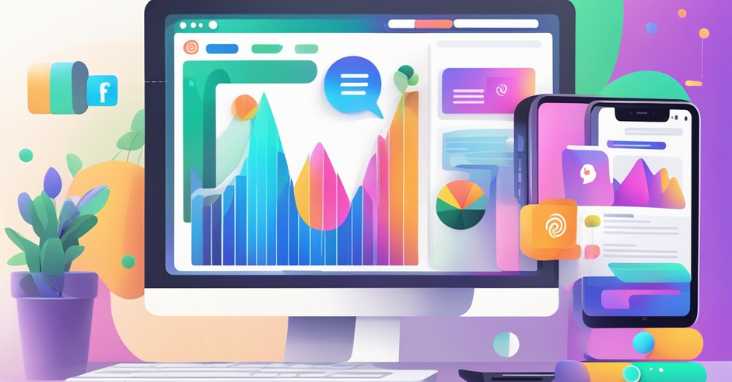
Digital creators need to effectively market and promote their content to reach a wider audience and increase their brand awareness. In this section, we will discuss some digital marketing essentials, search engine optimization (SEO), and social media and influencer marketing.
Digital Marketing Essentials
Digital marketing is a crucial aspect of promoting content online. It involves using various digital channels to reach and engage with the target audience. Some digital marketing essentials include:
- Email marketing: Sending newsletters and promotional emails to subscribers can help keep them engaged and informed about new content.
- Content marketing: Creating valuable and informative content can attract new audiences and increase brand awareness.
- Paid advertising: Using platforms like Google Ads or social media advertising can help reach a wider audience and increase visibility.
Search Engine Optimization (SEO)
SEO is the practice of optimizing content to rank higher on search engine results pages (SERPs). This can help increase visibility and drive more traffic to a creator’s content. Some important aspects of SEO include:
- Keyword research: Identifying relevant keywords and incorporating them into the content can help improve rankings.
- On-page optimization: Optimizing titles, meta descriptions, and content structure can improve the chances of ranking higher.
- Link building: Acquiring high-quality backlinks from other websites can improve a website’s authority and increase rankings.
For more information on SEO, check out this Beginner’s Guide to SEO.
Social Media and Influencer Marketing
Social media platforms like Instagram, Twitter, and TikTok provide an excellent opportunity for digital creators to reach and engage with their audience. Influencer marketing involves collaborating with other creators or brands to reach a wider audience. Some tips for effective social media and influencer marketing include:
- Consistency: Posting regularly and consistently can help keep the audience engaged and interested in the content.
- Engagement: Responding to comments and messages can help build a relationship with the audience and increase engagement.
- Collaboration: Collaborating with other creators or brands can help reach a wider audience and increase brand awareness.
For more information on social media and influencer marketing, check out this Social Media Marketing Guide.
Creating a Professional Online Presence

In today’s digital age, having a professional online presence is crucial for digital creators. It not only helps them establish credibility and trust with their audience but also enables them to showcase their work and attract potential clients. Here are some key strategies for creating a professional online presence.
Developing a Personal Brand
Developing a personal brand is the first step towards creating a professional online presence. It involves identifying your unique value proposition, defining your target audience, and crafting a brand message that resonates with them. A strong personal brand can help you stand out in a crowded market and attract the right clients.
One way to develop a personal brand is to create a brand statement that encapsulates your values, mission, and vision. This statement should be concise, memorable, and reflective of your brand identity. You can also use visual elements such as logos, color schemes, and typography to reinforce your brand identity across all your online platforms.
Showcasing Work through Portfolios and Websites
A portfolio or website is an effective way to showcase your work and demonstrate your skills to potential clients. It should showcase your best work, highlight your strengths, and provide a clear overview of your services.
When creating a portfolio or website, it’s important to keep it simple, user-friendly, and visually appealing. Use high-quality images and videos to showcase your work and make sure the navigation is intuitive and easy to follow. You can also include testimonials from satisfied clients to reinforce your credibility and expertise.
Utilizing Online Platforms for Visibility
Online platforms such as Instagram, YouTube, TikTok, and Twitter can be powerful tools for building your online presence and reaching a wider audience. Each platform has its own unique features and audience, so it’s important to choose the ones that align with your goals and target audience.
When utilizing online platforms, consistency is key. Post regularly and engage with your audience to build a loyal following. Use hashtags and keywords to increase your visibility and make sure your content is high-quality, relevant, and aligned with your brand message.
To learn more about creating a professional online presence, check out this external resource by Forbes Agency Council.
Skills and Personal Development

Digital creators are constantly honing their skills and cultivating their creativity to stay ahead of the game. Here are some ways they can improve their technical skills, personality, and education to remain relevant in an ever-changing industry.
Improving Technical Skills
Technical skills are essential for digital creators. They need to be proficient in software, hardware, and other tools used to create their content. To improve their technical skills, digital creators can attend workshops, webinars, and online courses. They can also read blogs and watch tutorials to stay up-to-date on the latest trends and techniques.
One great resource for improving technical skills is Adobe Creative Cloud. This suite of software includes popular tools like Photoshop, Premiere Pro, and After Effects, which are used by many digital creators. Adobe offers a variety of tutorials and online courses to help users master these tools.
Cultivating Creativity and Personality
Digital creators need to have a unique voice and style to stand out in a crowded market. To cultivate their creativity and personality, they can experiment with different mediums and techniques. They can also collaborate with other creators to learn new skills and gain inspiration.
Another way to cultivate creativity is to take breaks and engage in activities outside of work. This can help prevent burnout and keep the mind fresh. For example, a digital creator who enjoys writing may find that taking a walk in nature or reading a book can help spark new ideas.
Continuing Education and Staying Current
Digital creators need to stay up-to-date on the latest trends and technologies to remain relevant. They can do this by attending conferences, reading industry blogs, and networking with other creators. They can also take online courses to learn new skills or brush up on existing ones.
One great resource for staying current is the CreativeLive platform. This online learning community offers courses in a variety of topics, including photography, video, and writing. They also offer live workshops and events where digital creators can connect with others in the industry.
In conclusion, digital creators need to continually develop their skills and personality to stay ahead of the game. By improving their technical skills, cultivating their creativity and personality, and staying current with the latest trends and technologies, they can remain relevant and successful in a competitive industry.
Legal and Ethical Considerations

Understanding Copyright and Intellectual Property
As a digital creator, it is important to understand the legal implications of using copyrighted material and intellectual property. Copyright laws protect original works of authorship, including literary, artistic, musical, and other creative works. Unauthorized use of copyrighted material can result in legal action, including fines and even imprisonment.
To avoid infringing on someone else’s copyright, digital creators should always obtain permission to use any copyrighted material. They should also give credit to the original creator and include a link to the source. Additionally, creators should familiarize themselves with fair use laws, which allow for limited use of copyrighted material for purposes such as commentary, criticism, news reporting, teaching, scholarship, or research.
It is also important to understand intellectual property laws, which protect intangible creations such as ideas, inventions, and designs. Digital creators should be aware of patents, trademarks, and trade secrets, and take steps to protect their own intellectual property.
Navigating the Ethics of Digital Creation
In addition to legal considerations, digital creators must also navigate ethical issues. They should strive to create content that is truthful, accurate, and respectful of others. They should also be transparent about any sponsored content or advertising.
Digital creators should also be mindful of the impact their content may have on others. They should avoid creating content that is discriminatory, offensive, or harmful. They should also respect the privacy of others and obtain consent before sharing personal information or images.
Overall, digital creators must balance their creative freedom with their legal and ethical responsibilities. By understanding copyright and intellectual property laws and navigating ethical issues with care, digital creators can create content that is both engaging and responsible.
For more information on copyright and intellectual property laws, visit the U.S. Copyright Office.
Frequently Asked Questions

How can one monetize their work as a digital creator?
Monetizing digital content can be done in various ways. Some of the most common ways include sponsored content, affiliate marketing, selling digital products, and offering services such as consultation or freelance work. It is essential to have a strong online presence and a loyal following to be able to monetize one’s work successfully. According to Forbes, “digital creators should focus on building their brand, creating engaging content, and building relationships with their audience to attract monetization opportunities.”
What are the essential tools and software for a digital creator?
The essential tools and software for a digital creator depend on the type of content they create. However, some of the most commonly used tools and software include Adobe Creative Suite, Final Cut Pro, Procreate, Wacom tablets, and various social media management tools. According to HubSpot, “digital creators should invest in high-quality equipment and software to create professional-looking content.”
What qualifications are necessary to pursue a career in digital creation?
There are no specific qualifications required to pursue a career in digital creation. However, having a strong understanding of digital media, marketing, and design principles can be helpful. Many digital creators have degrees in fields such as graphic design, marketing, or communications. According to Career Explorer, “digital creators should have a strong portfolio, excellent communication skills, and the ability to work independently.”
How does the role of a digital creator differ from a traditional content creator?
The role of a digital creator differs from a traditional content creator in that digital creators primarily create content for online platforms such as social media, blogs, and websites. Traditional content creators, on the other hand, may create content for print or television. Additionally, digital creators often have a more direct relationship with their audience and rely heavily on social media and other digital platforms to distribute their content.
What are some common career paths for digital creators?
Some common career paths for digital creators include social media manager, content creator, graphic designer, web developer, and digital marketer. Many digital creators also work as freelancers or start their own businesses. According to Indeed, “digital creators should have a strong understanding of digital marketing, design principles, and social media management.”
Are there any platforms that offer digital creation services for free?
Yes, there are many platforms that offer digital creation services for free, such as Canva, Pixlr, and GIMP. These platforms offer various tools and software for creating graphics, images, and videos. However, it is important to note that the free versions of these platforms may have limited features and functionality. According to TechRadar, “digital creators should explore the various free options available and choose the one that best suits their needs.”
Compare hundreds of Digital Marketing Software in our Software Marketplace





